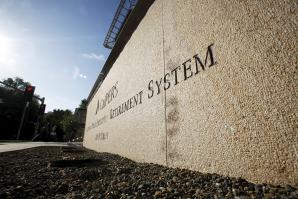Despite months of negotiations between legislators and the governor, a reasonable state budget seems an almost unreachable goal. Even the so-called GOP 5, a group of Republican legislators who had bucked party trends and continued talks with Democrats, have given up and left the negotiating table.
The biggest stumbling block to a deal appears to be pension reform — as well it should be. Pension costs are bankrupting state and local governments, sucking up resources and forcing cuts in funding for schools, public safety and social services.
Take a look at the numbers. According to recent Stanford University research, the state’s largest pension systems (CalPERS, CalSTRS and the University of California Retirement System) could be underfunded to the tune of $500 billion. In the past decade, the amount the state spends on the worker-retirement system increased by 2,000 percent, while state funding for education declined.
Local systems are nearly $200 billion in the red and are likely to spend about half of payroll over the next two decades on unfunded pension obligations plus other retirement and health care benefits.
California is not alone — in fact, most states are grappling with massive pension obligations. The causes are many: overly optimistic projections of pension fund returns, unaffordable political promises, undisciplined pension systems lacking accountability and oversight and then the housing bust and stock market collapse.
But while a few states (notably Utah, New Jersey, Florida and Illinois) have at least started on the path to reform, California has not. Sadly, Gov. Brown has not yet shown the political courage needed to take on real reform in the single area that is most undermining our state’s financial stability. After weeks of Republican pressure, he only recently took a tentative first step toward pension changes.
The governor’s proposals are more symbol than substance. While they would ban pension spiking and prohibit retroactive benefit increases, for example, they would do nothing to substantively change our very broken system.
We know what we need to do. The Little Hoover Commission, a bipartisan, independent state agency charged with recommending ways to increase the efficiency and effectiveness of state programs, laid out a clear plan earlier this year in a no-nonsense report on public pensions.
But its key proposals are not politically popular. That is especially true for its central contention that there is no real solution without a change in the ever-mounting pension obligations for current workers. The commission wants the governor and Legislature to freeze pension benefits, modify future benefits and go forward with a hybrid model that combines a lower defined-benefit plan with an employer-matched defined contribution plan.
It recommends uniform standards for all 85 defined-benefit pension plans in California, a cap on the maximum salary used to calculate benefits, a requirement that employees and employers share the normal costs of funding pensions and a number of steps to improve accountability and transparency.
These are prudent, much-needed reforms of our unsustainable pension system. They require thoughtful consideration, debate and the political courage to act in the face of strong opposition.
I urge you to call upon the governor and your state legislators to go beyond political rhetoric and institute the pension reform we need to move forward. There is no single more important step that our lawmakers can take to restore our fiscal health, protect taxpayers and save important programs.
Recommended For You

Dilution Solution
The future of retirement for public employees
Looking back, it’s easy to see how some local government pension plans wound up underfunded. As described in last month’s issue, much of the blame goes to generous legislation passed during California’s boom cycles.


